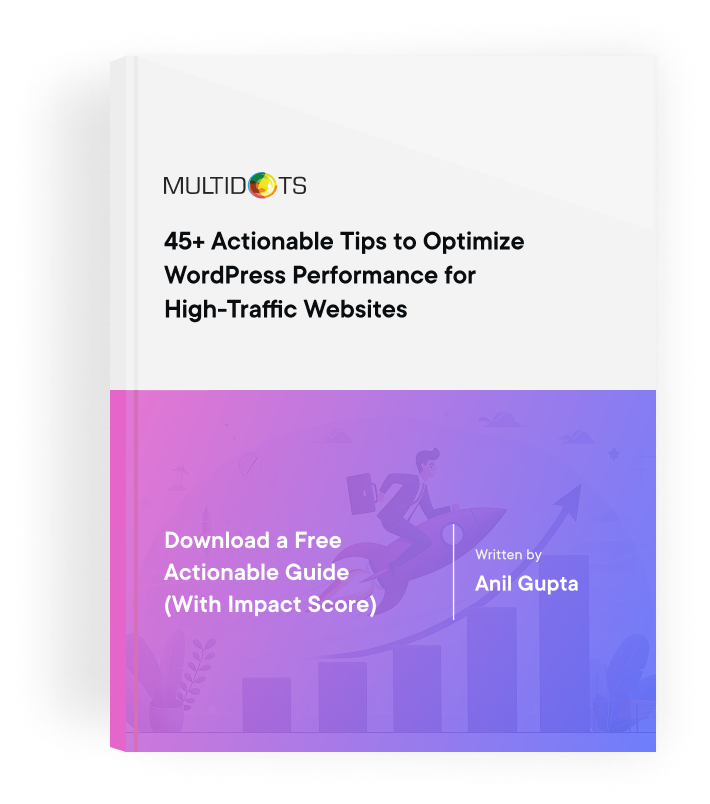Sitecore to WordPress: How Large Enterprises Can Save Big on CMS Costs
Is migrating from Sitecore to WordPress worth the investment? Let’s find out!

Table of Contents
Sitecore is a great content management system (CMS) for enterprises. It offers enterprise-grade security and high performance, even for heavy websites at peak loads.
However, limitations like licensing costs, lack of customizability, and steeper learning curve are turning organizations away from this legacy CMS. In fact, Sitecore costs enterprises millions of dollars in licensing and maintenance fees within just three years!
WordPress appears as a viable alternative that doesn’t have any of the above limitations while delivering exceptional performance and enterprise-grade data security. The open-source CMS makes it easy for large organizations to expand their website in any direction easily.
Of course, migrating from Sitecore to WordPress is a critical decision, especially for enterprises with established digital ecosystems. Websites often sit at the center of a company’s digital presence, adding to the overall complexity.
Teams considering a transition to WordPress for the benefits mentioned earlier should conduct an in-depth financial analysis. It involves estimating the return on investment (ROI) of migrating to WordPress.
In this article, let’s look at the key cost factors and considerations involved in migrating from Sitecore to WordPress for large enterprises.
1. Set up costs: Sitecore vs WordPress
This is the foundational investment brands need to make. It can also be a recurring fee as it includes licensing and infrastructure costs.
Enterprises can compare the setup costs of Sitecore vs WordPress in three aspects:
Licensing fees: Sitecore is a proprietary platform and this can run into tens of thousands of dollars annually. On the other hand, WordPress, being a free and open-source platform, costs nothing. This alone can reduce the overhead costs of businesses significantly.
Infrastructure requirements: Sitecore has particular server and hosting needs, which must be met for optimal performance, driving up the costs. With WordPress, enterprises can choose from shared to dedicated hosting based on their needs. It does save a few bucks in the long term.
Development and customization: WordPress has a broader talent pool which incurs lower development costs due to its widespread adoption. Moreover, site customization is pretty straightforward with WordPress, reducing the dependency on specialized developers even further.
2. Migration costs: Sitecore to WordPress
The migration costs refer to the expenses related to transferring existing content, files, features, and integrations from Sitecore to WordPress. As you can imagine, this is a complex and multilayered process that requires careful planning.
It can be broken down into three areas:
Data migration: Teams need to audit their Sitecore website’s content and start moving files methodically. It includes content, assets, databases, and meta details. Custom scripts and specialized automation can expedite this process. After the data transfer is complete, enterprises should test it thoroughly on the new WordPress site.
Plugin and module replacement: Sitecore’s custom-built modules may not have direct equivalents on WordPress. However, there may be plugins (free or premium) that offer the same functionality. In some cases, you may have to manually develop certain features, which is a one-time investment.
Third-party integration: These are the connections from your CMS to other business systems like CRM or ERP. Enterprises can easily recreate them through custom API development on WordPress. This will incur additional costs but will result in a more agile setup down the line.
3. Maintenance costs: Sitecore vs WordPress
Maintenance costs are the expenses associated with keeping your site functional and up to date. The key areas of consideration while evaluating Sitecore to WordPress migration include:
Hosting and infrastructure: The servers and services run on monthly or annual subscriptions. Due to the wider range of hosting options available, WordPress can be cost-effective compared to Sitecore.
Development and support: Development costs are typically higher with Sitecore, considering there are limited engineers specializing in it. Enterprises can also expect great support from Sitecore. Fortunately, WordPress users can get affordable support from its vast developer pool and a thriving global community.
Plugin and theme update: Keeping the additional website functionalities or third-party tools up to date may require developers’ assistance with Sitecore. Most WordPress plugins and themes update automatically, streamlining the overall process.
Security management: Enterprise teams can protect their online presence and customers’ data easily with WordPress plugins (free and premium). Sitecore’s enterprise-grade security is best-in-class but can put a dent in your wallet.
Sitecore to WordPress: Is it worth the cost?
Enterprises can quickly determine whether moving to WordPress from Sitecore is worth it by estimating the full cost of running their website with both CMS options. The typical numbers for a website handling about a million visitors a month look like this:
| Cost | WordPress | Sitecore XM (On-Premise) | Sitecore XM Cloud |
|---|---|---|---|
| License Cost (Annual) | $0 | $80,000 to $150,000+ | $100,000 to $200,000+ |
| Design and Build (One-time) | $50,000 to $100,000 | $100,000 to $300,000+ | $100,000 to $200,000+ |
| Cloud and Hosting (Annual) | $25000+ | $100,000+ | $0 |
| Average Cost of 5 Premium Add-ons (Annual) | $25000+ | $100,000+ | $60,000+ |
| Support and Maintenance (Annual) | $12,000 to $24,000 | $25,000 to $75,000 | $30,000 to $100,000 |
| Non-Production Installations (Annual) | $0 | $20,000 to $50,000 | $0 |
| Total Cost (1st Year) | $100K to $180K | $400K to $800K | $300K to $600K |
| Total Cost (3 Years) | 🏆 $200K to $350K | $1M to $2M | $700K to $1.5M |
Regardless of whether the existing Sitecore website is hosted on-premise or the cloud, WordPress will save enterprises millions of dollars within a span of three years!
Even if teams factor in the cost of Sitecore to WordPress migration costs, the savings will be a few hundred thousand dollars, and that’s putting it lightly.
In the long term, WordPress saves enterprises a ton through considerably lower licensing and maintenance costs. Moreover, the widespread availability of WordPress developers and the platform’s intuitive user interface add to the affordability.
Furthermore, scaling up is quite easy with WordPress. Bringing in new functionalities to your WordPress website can be done in seconds with plugins. Teams can also bolster their platform’s security with various specialized plugins without needing any developers' assistance.
The biggest advantage of WordPress that makes the transition from Sitecore worth it for enterprises is performance. A well-optimized WordPress site can outperform a Sitecore site on various benchmarks such as speed, responsiveness, and security.
Looking forward: Future-proof your enterprise with WordPress
When it comes to choosing a CMS, enterprises should prioritize one that can grow with them easily. WordPress offers exactly that — a scalable, secure, and cost-effective platform.
It beats Sitecore in many areas such as plugin availability, simplicity, and a supportive community. Even non-technical stakeholders can quickly learn how to manage content on WordPress within minutes!
That said, migrating from Sitecore to WordPress is a complex and multilayered process. Doing this in-house requires significant time and cost investment. It requires enterprises to hire specialized professionals, buy the relevant tools, and deal with operational disruptions.
Instead, partnering with an experienced WordPress development agency can simplify things massively.
Multidots, a WordPress VIP Gold Agency Partner, has migrated many heavy enterprise websites from Sitecore successfully with minimal downtime. Our team of experts ensures you reap all the benefits of WordPress while remaining stress-free during the migration process.
We also keep you updated every step of the way and provide continued support well after the migration to help your team get up to speed.
Ready to future-proof your enterprise website? Contact us today for a consultation.
FAQs
-
Migrating to WordPress eliminates expensive licensing fees, reduces hosting and maintenance costs, and offers a broader pool of affordable developers. WordPress also provides cost-effective plugin options, allowing enterprises to lower their overall operating expenses significantly.
-
Yes, large enterprises can maintain custom functionalities. WordPress’s extensive plugin ecosystem, combined with custom development, allows businesses to replicate Sitecore features, ensuring that no essential functionality is lost during the migration.
-
A typical Sitecore to WordPress migration can take between a few weeks to several months, depending on complexity. The timeline impacts costs through development hours, testing, and ensuring that all content and functionalities are seamlessly transferred.
-
Ongoing costs include hosting fees, plugin subscriptions, regular maintenance, security management, and occasional development support. These costs are generally much lower than Sitecore’s licensing and infrastructure expenses, making WordPress more economical over time.
-
WordPress being open-source eliminates licensing costs, providing more freedom for customization and integration. Enterprises benefit from lower development expenses, a wide range of free plugins, and competitive support services, making it a highly cost-effective CMS solution.
-
Yes, when properly configured with enterprise-grade security measures and services like WordPress VIP, WordPress can be highly secure. It may appear that primarily WordPress websites get attacked due to WordPress’ sheer popularity.
Feel free to schedule a quick call with our migration expert.
Contact Us
